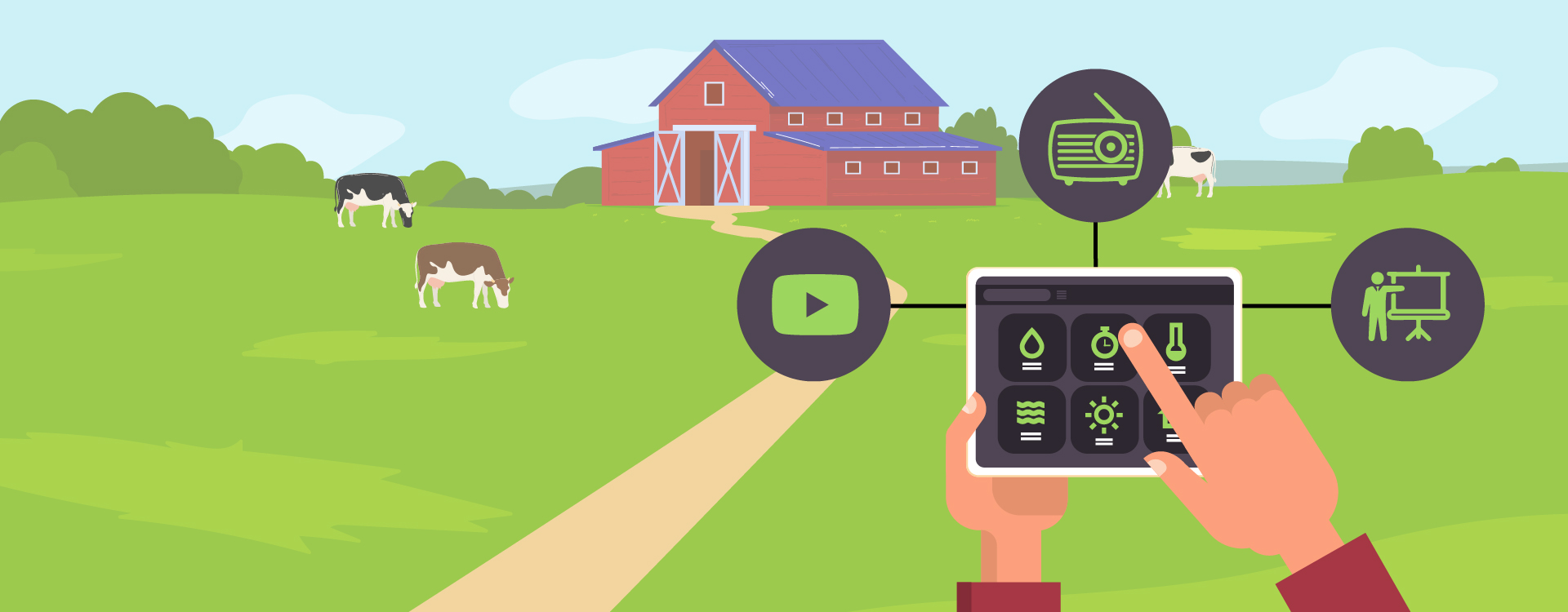The deeper penetration of high-speed internet and affordable smartphones in rural India is giving impetus to the agritech startups. Farmers are gradually embracing various technology solutions such as SaaS, AI, IoT, from agritech startups to battle the irregularities of the supply chain and procurement process, pricing, crop production, and weather monitoring, etc. As per NASSCOM, India is currently home to 450 agritech startups and is estimated to grow by 25 percent every year. Besides, yearly growth the startups have risen to occupy a soft corner in investor’s hearts, which confirms that the future is promising. But there are yet some challenges faced by these startups in marketing due to the skepticism of stakeholders to adopt new technology or have limited channels to reach the end consumers.Below are some of the new marketing trends in agritech startups that can be implemented.
‘‘
As per NASSCOM, India is currently home to 450 agritech startups and is estimated to grow by 25 percent every year.
New marketing trends in Agritech startups :
Going the Direct-to-Consumer way
Applicable for farm-to-fork agritech startups. Mumbai-based integrated end-to-end agritech startup INI Farms supplies non-seasonal fruits from farm to table and has launched its direct-to-consumer vertical, Kimaye.com to directly sell its produce to consumers and supermarkets like Star Bazaar, and Big Bazaar, etc. On similar grounds, Clover-a greenhouse agritech startup has recently launched its D2C app Deep Rooted for its consumers to allow the purchase of fresh vegetables and fruits. The startups launching D2C apps will act as an efficient marketing tool that can deliver a personalised shopping experience by updating them with the delivery status, discounts, promotional offers, payment receipts, etc. The app will also aid in understanding the purchasing pattern of the customer and offer an optimized shopping experience. Also, in the app startups can include the option of ‘request a farm tour’ for the end consumers.
Video Marketing
Videos are appealing, easily consumable, and remain etched in the minds for long, therefore agritech startups should launch their YouTube channels in local languages to make the farmers comprehend the benefits of technology and other services in their farming practices. Agritech startups that provide farming insurance products in rural India, can launch videos explaining them about what insurance covers. The content of the video rather than being promotional should be more educational and persuasive that clarifies the ambiguities about a product or technology to a farmer in an easily understandable language.
Radio Marketing
Radio in rural India yet is a significant medium of entertainment. Agritech startups should contact the local city radio stations to participate in shows dedicated to the farmers and cattle caretakers. The startups can talk about their offerings and how adopting such processes will help them in their regular farming practices.
Free Sampling or Free trials
Indians are prime believers of touch and feel. In various village exhibitions or has, the agritech startups can set up stalls to attract visitors for a free sampling or trials of their offering. Free sampling or free trials is highly beneficial for farming-as-a-service agritech startups that offer data-powered farm practices or for improving the farm productivity of farmers.
Help Groups Conducting Demo Sessions
Agritech startups can form their network of village consultants who will act as the major promoters of your startup offerings to the town or district speaking in the local tongue. Allow them to conduct demo sessions of the product/service working to the populace and share informative manuals after the end of demo sessions, which will incite discussions in the minds of attendees later on.
What is in it for the startups?
The marketing trends for the agritech startups will be an amalgamation of digital media, apps, and human interaction. Through apps and websites, it can market its end products to the consumers whereas through human interaction and demo sessions, and videos it can persuade the farmers for its services.




